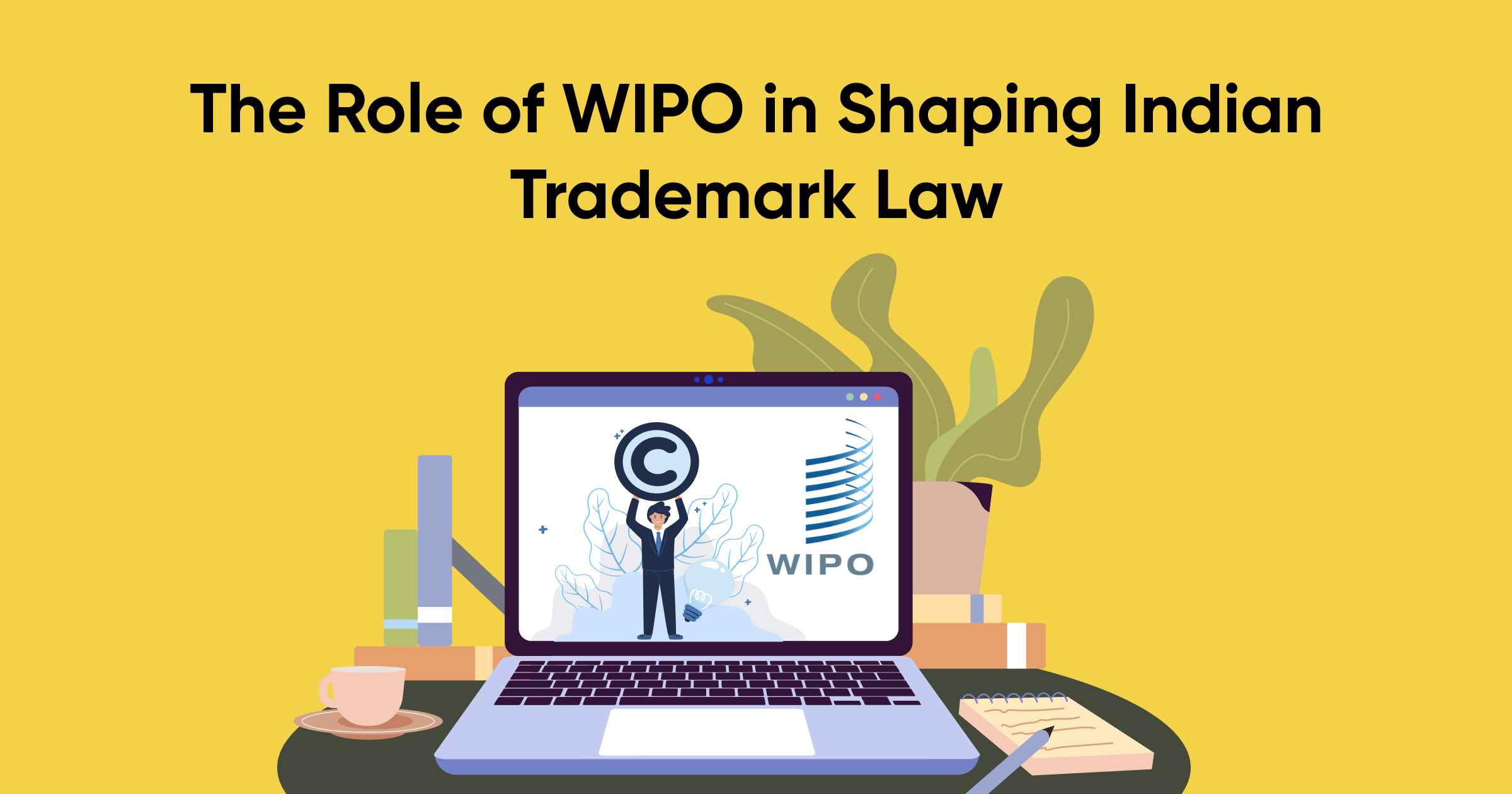Introduction:
In the detailed field of intellectual property rights, trademarks are essential for businesses to safeguard their brands and maintain their distinctiveness in international markets. The World Intellectual Property Organization (WIPO) significantly influences the standardization and advancement of trademark laws around the world, including in India. This blog delves into the influence of WIPO on Indian trademark law, exploring its implications for businesses operating within and outside of India.
Understanding Trademarks and WIPO:
A trademark is a symbol or mark that distinguishes the products or services of one company from those of others. Trademarks are pivotal in preventing unfair competition by ensuring the exclusive use of a brand, logo, or other identifiers to a particular business.
WIPO, a specialized agency of the United Nations, focuses on creating a fair and accessible global intellectual property (IP) system. It oversees various international agreements related to IP protection, including the Madrid System, which facilitates the international registration of trademarks.
WIPO’s Impact on Indian Trademark Law:
India, a member of WIPO since 1975, has aligned its trademark laws with international standards primarily through the influence of WIPO. The key areas impacted include:
Harmonization of Legal Framework:
- WIPO’s guidelines and treaties have significantly influenced India's trademark laws, leading to amendments that align with global practices. The Trademarks Act of 1999, which governs trademark law in India, incorporates many principles endorsed by WIPO. This Act has provisions for the registration, protection, and enforcement of trademark rights, which adhere closely to the standards set by WIPO.
International Registration through the Madrid System:
- One of the most significant impacts of WIPO on Indian trademark law is India's accession to the Madrid Protocol in 2013. This system allows for the international registration of trademarks, where an applicant can seek trademark protection in up to 123 countries through a single application. For Indian businesses, this means simplified processes and reduced costs when securing trademark rights internationally.
Technical Assistance and Capacity Building:
- WIPO provides technical assistance to its member countries, including India, to strengthen their IP infrastructure. This includes training programs for officials of the Indian Intellectual Property Office and initiatives aimed at raising IP awareness among businesses and the public. Such efforts enhance the overall efficacy of trademark registration, management, and enforcement in India.
Dispute Resolution Mechanisms:
- WIPO also aids in resolving international trademark disputes through its Arbitration and Mediation Center. This facility is crucial for Indian companies involved in cross-border business activities, offering a neutral, efficient, and less costly alternative to traditional litigation.
Benefits for Indian Businesses:
The collaboration between WIPO and Indian trademark authorities provides numerous benefits for Indian businesses:
- Streamlined Processes: The Madrid System simplifies the process of obtaining trademark protection across multiple countries, reducing both administrative burdens and costs.
- Global Reach: Through adherence to international standards, Indian trademarks gain better recognition and protection globally, helping businesses to expand internationally with reduced risk of infringement.
- Increased Awareness: WIPO’s initiatives help increase awareness among Indian entrepreneurs about the importance of trademarks, thereby fostering a culture of innovation and brand protection.
Challenges and Considerations:
While WIPO’s influence has been largely positive, challenges remain:
- Implementation Gaps: Although India has made strides in aligning with international standards, discrepancies in implementation at the national level can pose challenges.
- Balancing Domestic Interests: It's important to continually strike a balance between international obligations and local industrial interests to ensure that small and medium enterprises (SMEs) are not left at a disadvantage.
Conclusion:
WIPO plays a crucial role in shaping and enhancing the trademark laws in India. By facilitating international cooperation and ensuring adherence to global standards, WIPO has enabled Indian businesses to protect their trademarks more effectively at a global level. However, ongoing efforts are needed to address implementation challenges and ensure that the benefits of global integration reach all sectors of India’s vibrant economy. This ongoing evolution of trademark law will undoubtedly continue to impact the strategic decisions of Indian businesses in the global marketplace.







